Let’s talk about Greek Olive Bread—a beloved staple in Greek cuisine for its easy-to-get ingredients and rich flavors. Crafted from natural treasures like olives, olive oil, and durum wheat flour, it’s a celebration of simplicity and tradition. Whether baked as a hearty whole loaf known as “Fratzóla” or as three petite loaves, or “Karvélia,” in a tray, this bread embodies the essence of Greek culinary heritage.
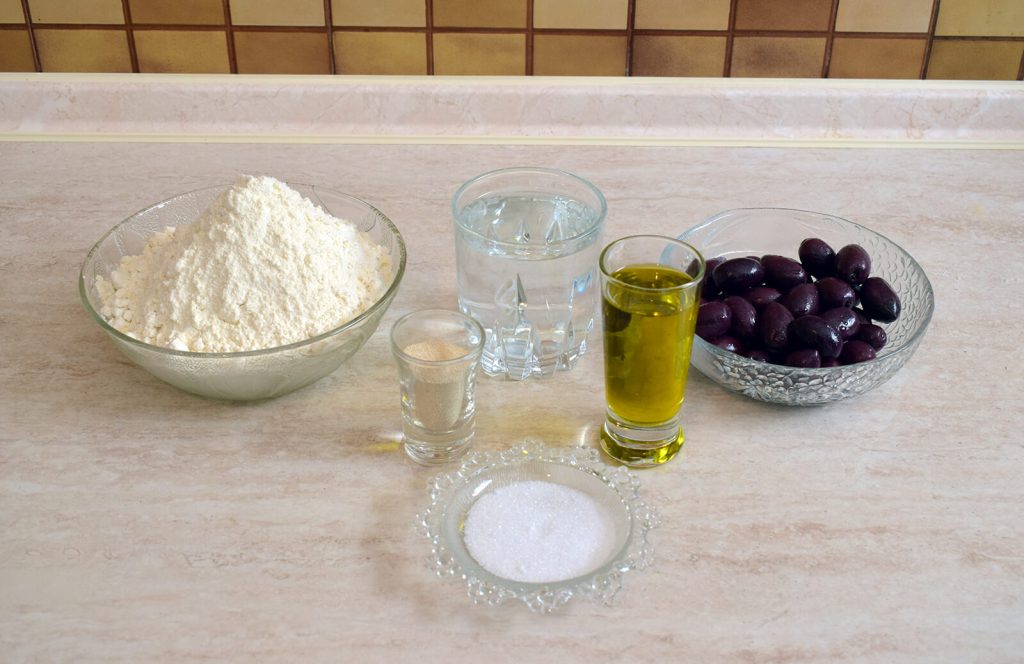
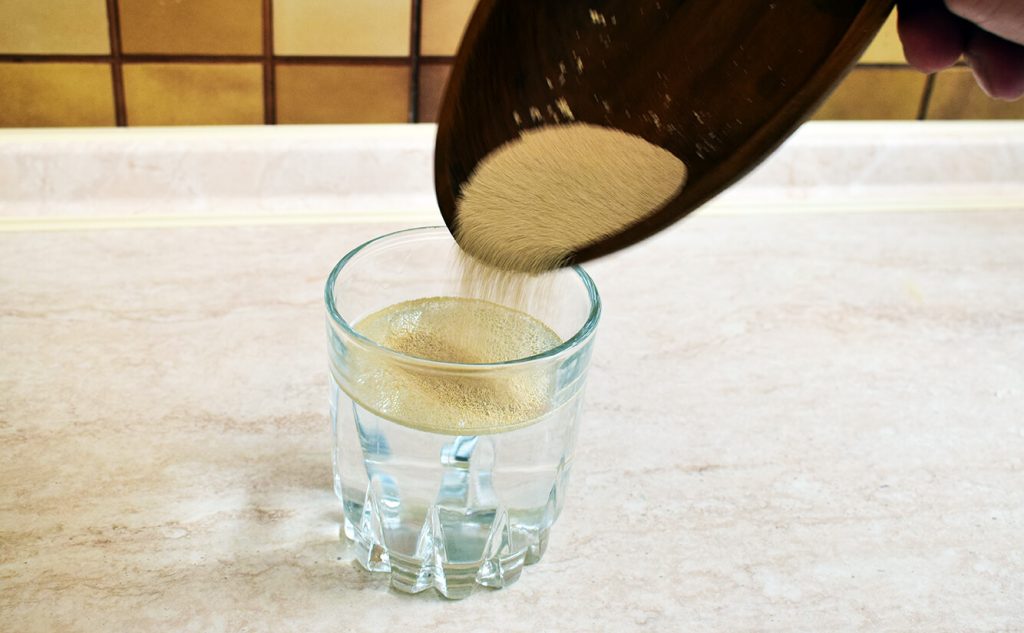
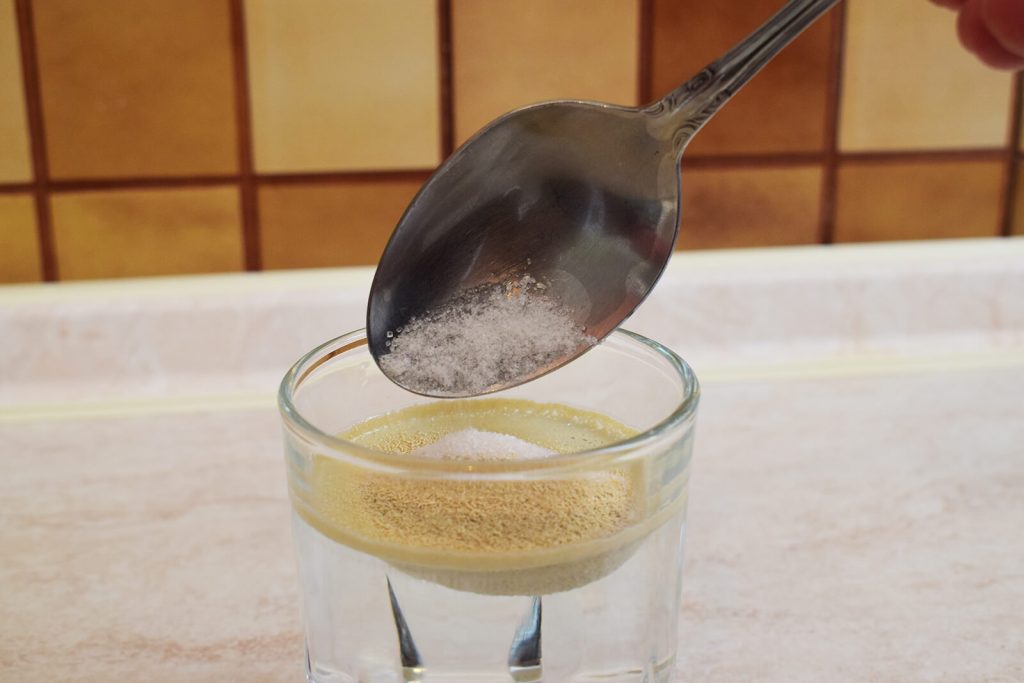
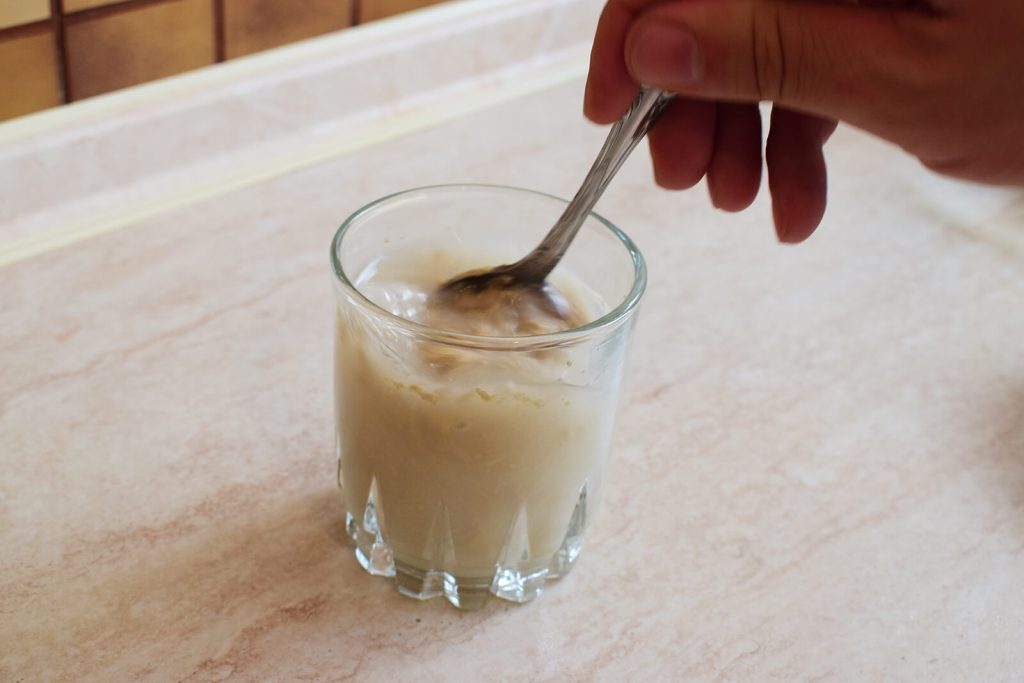
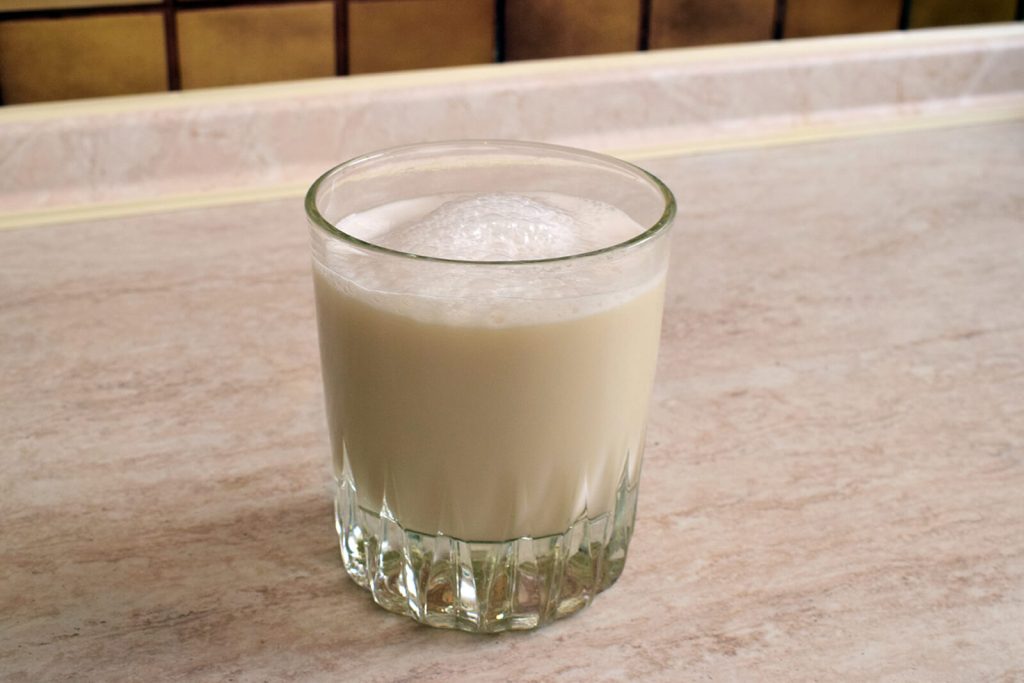
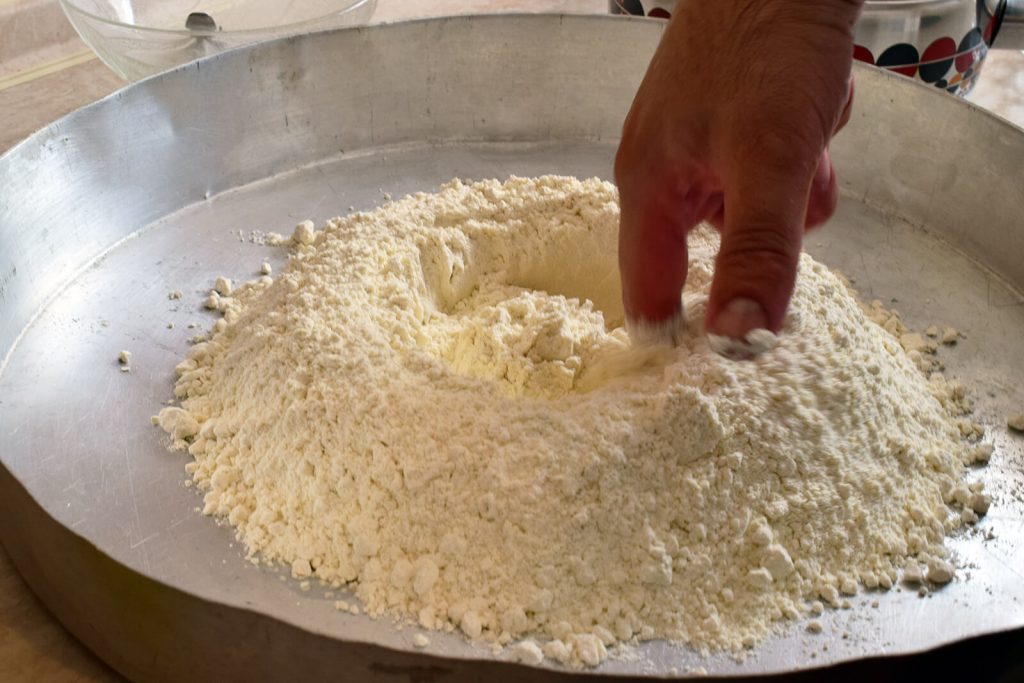
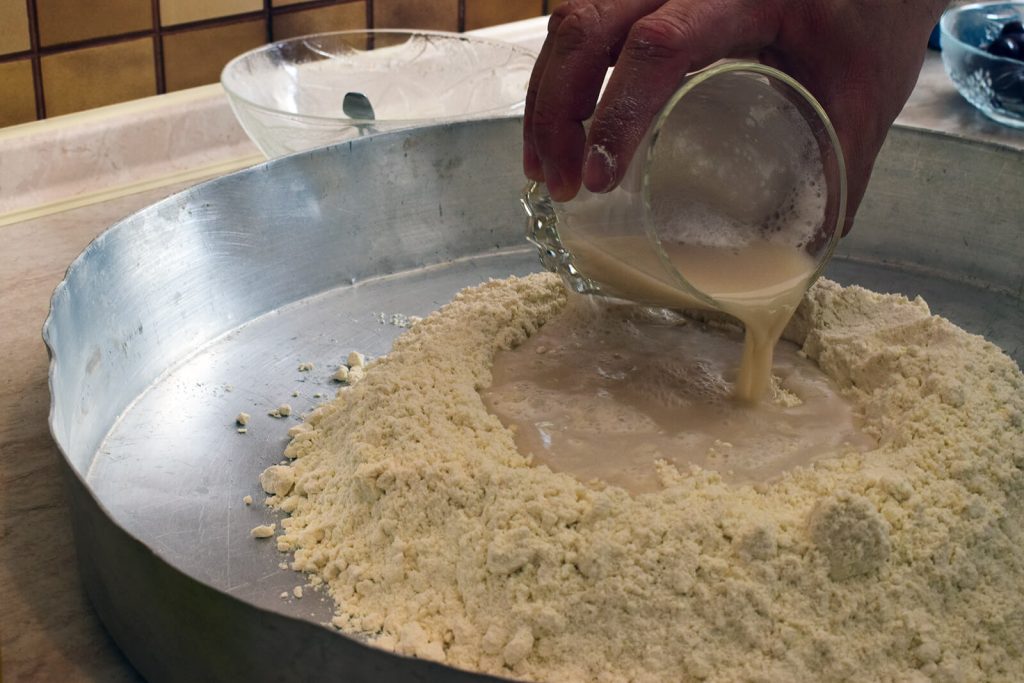
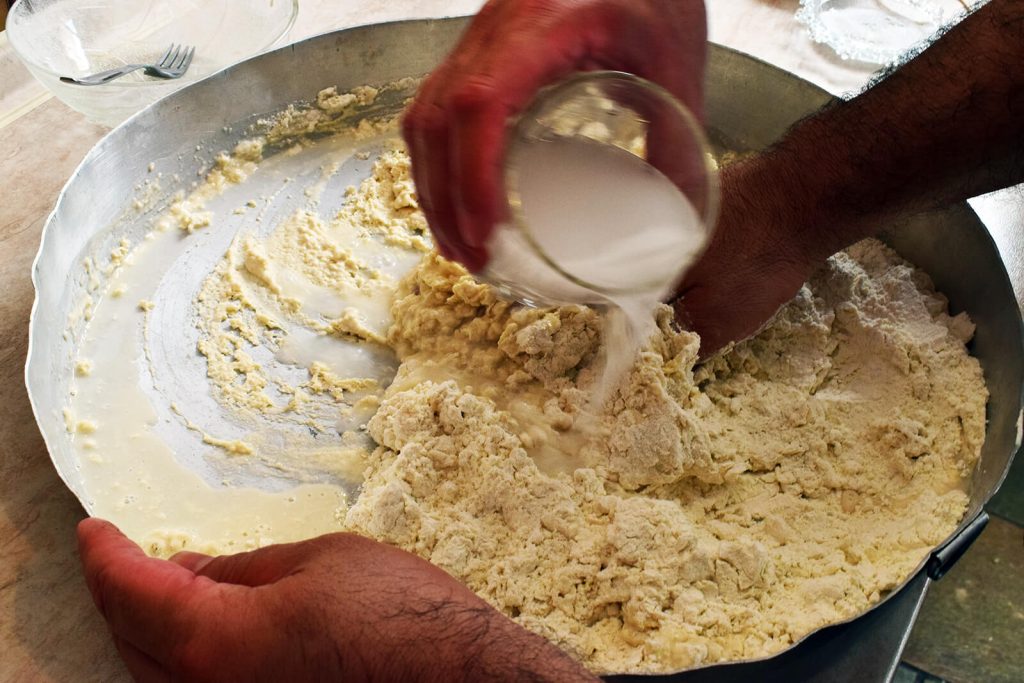
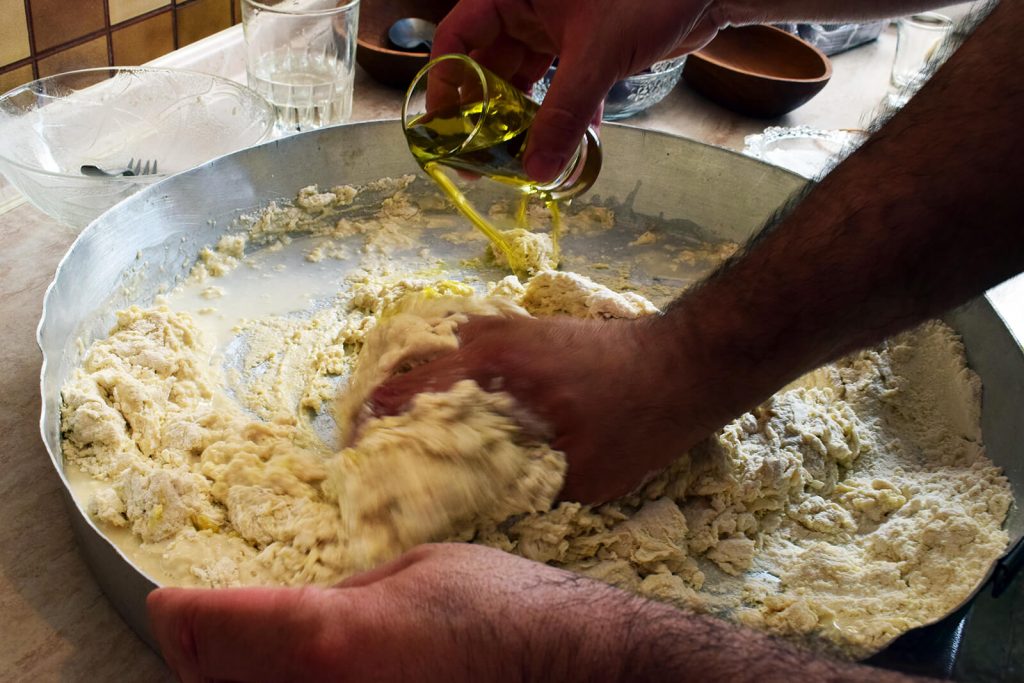
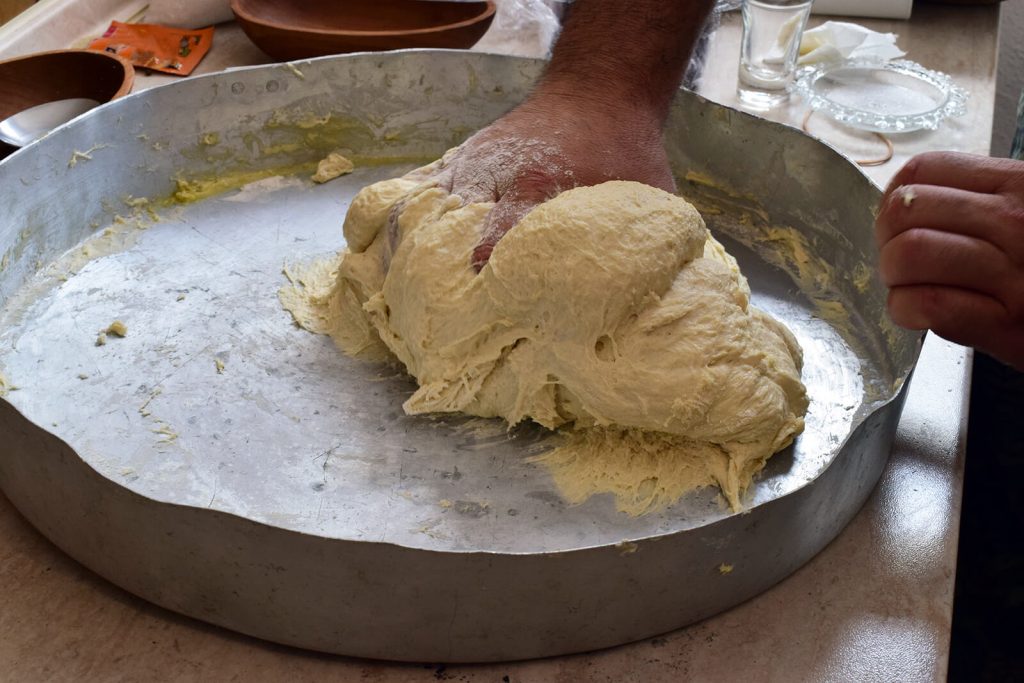
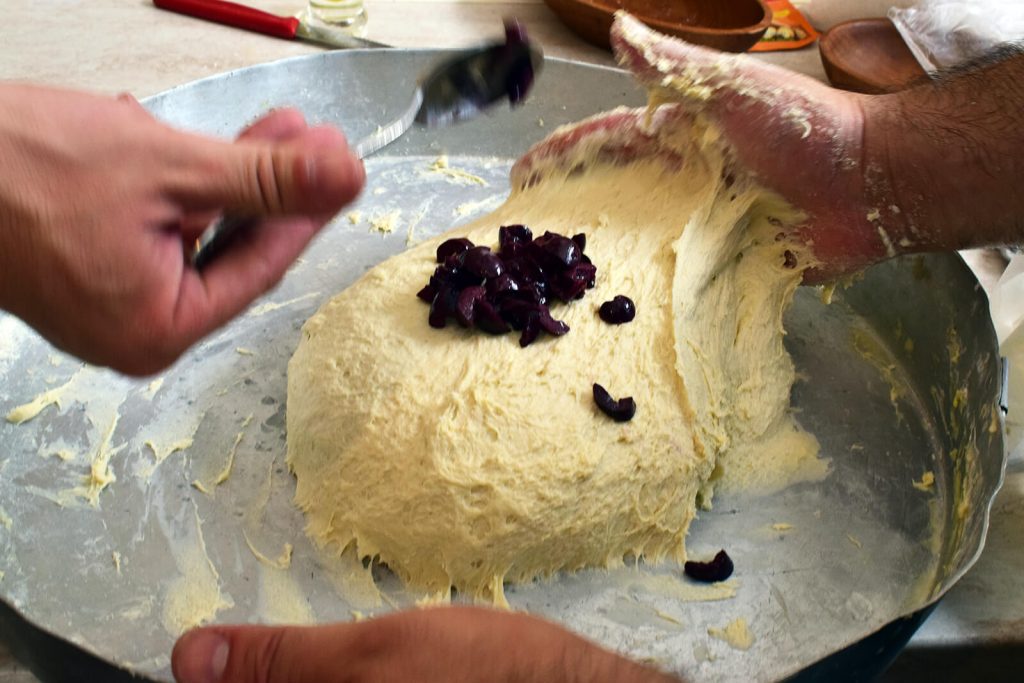
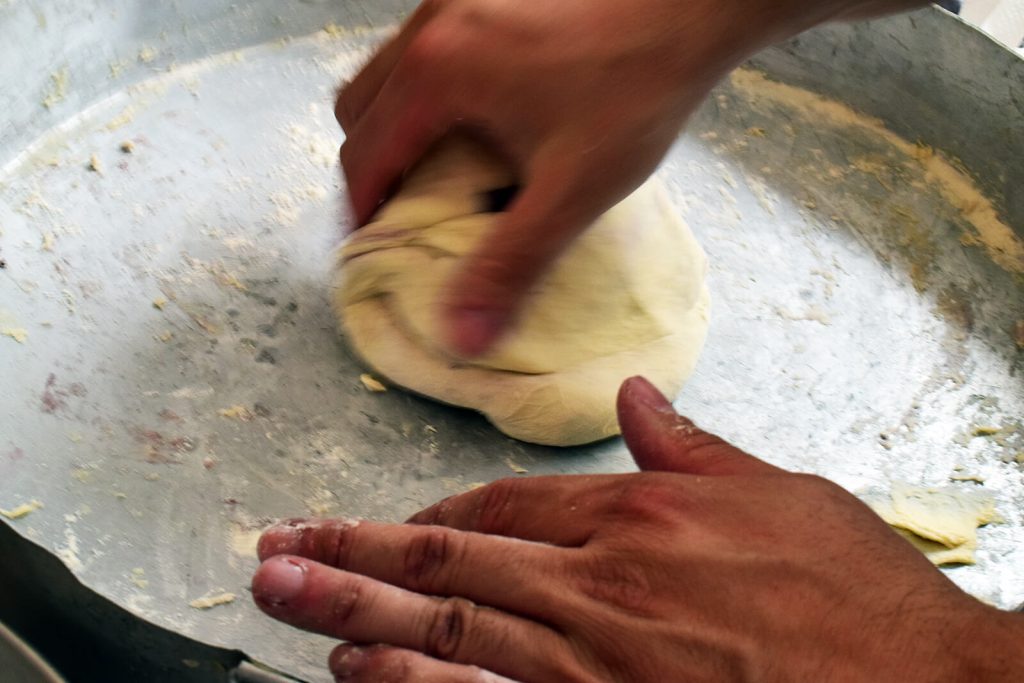
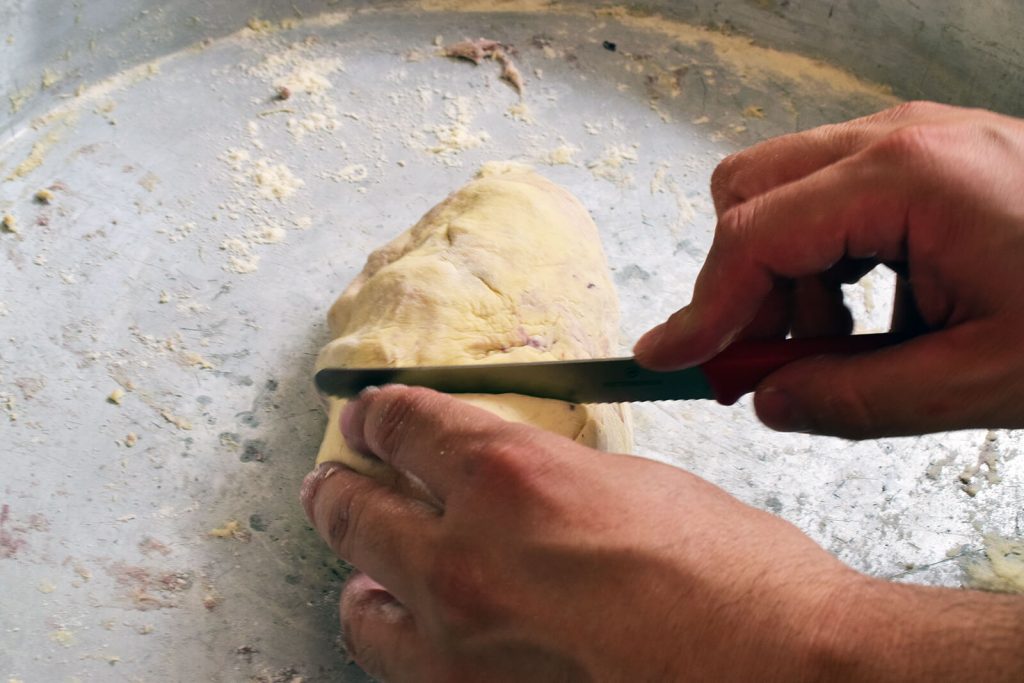
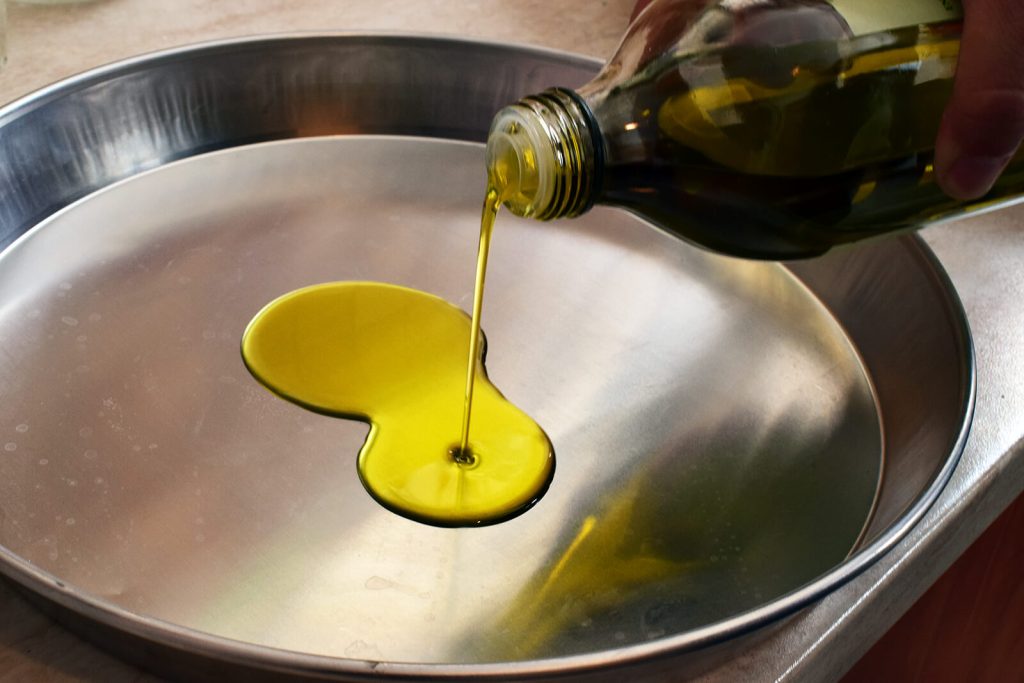
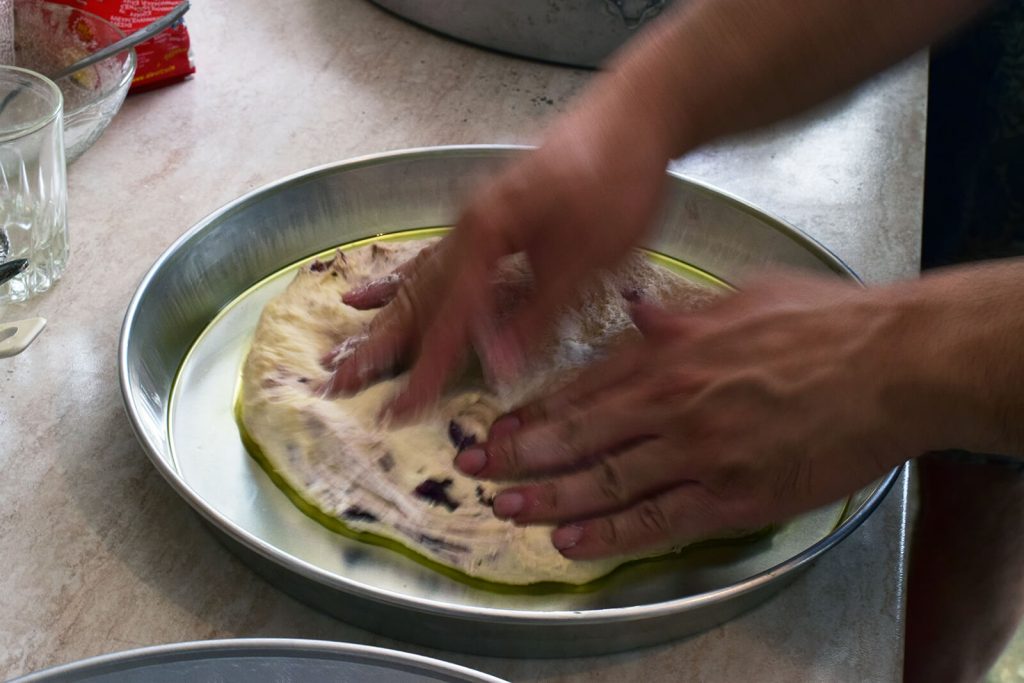
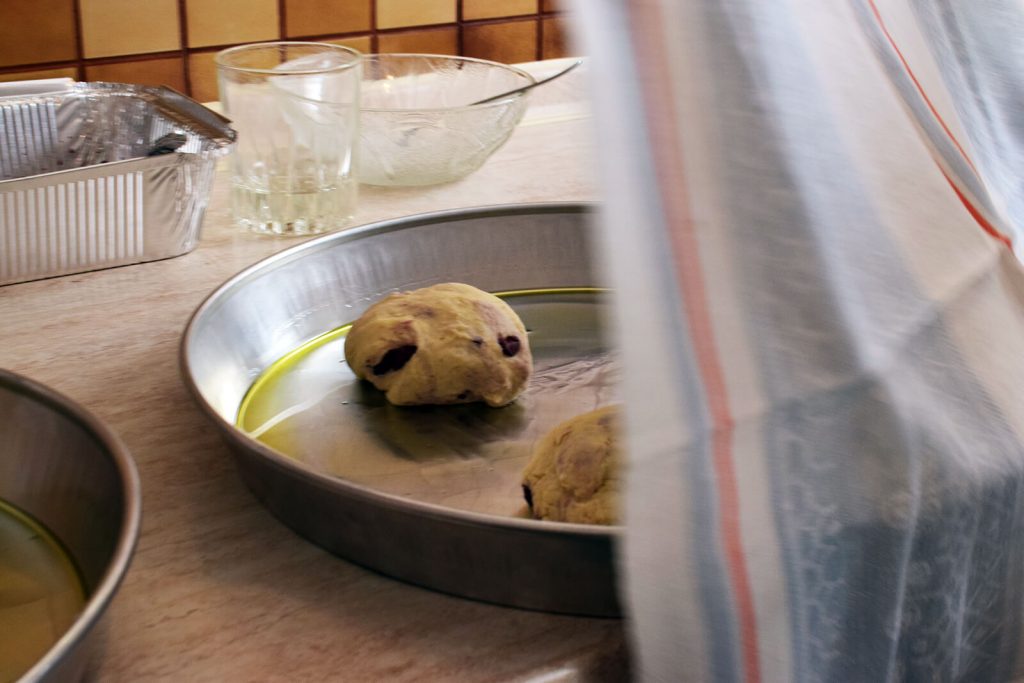
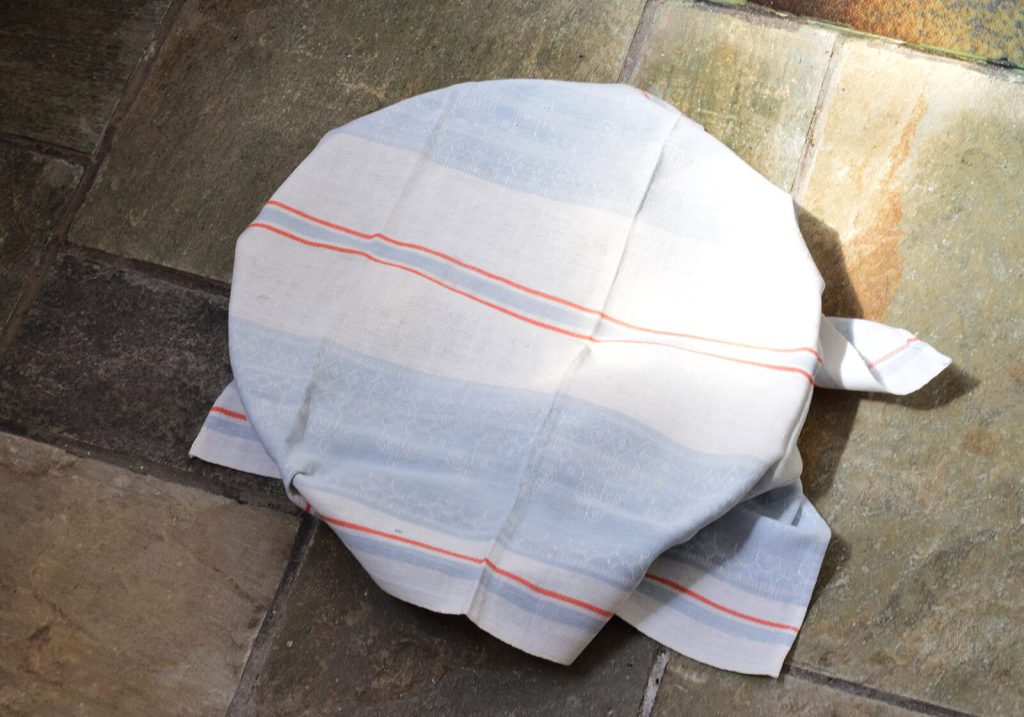
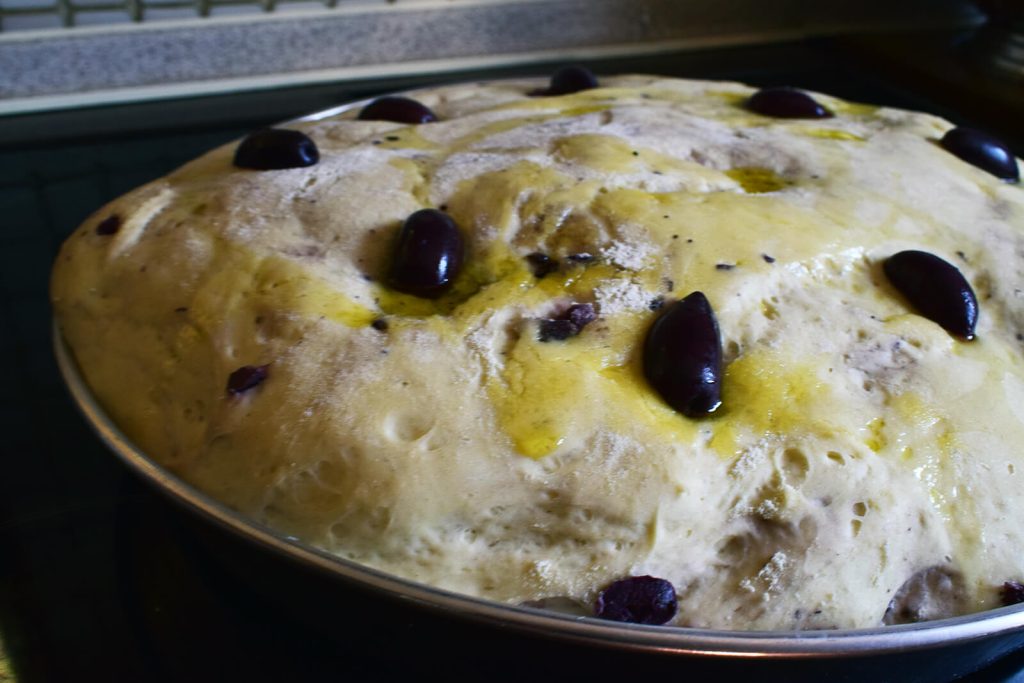
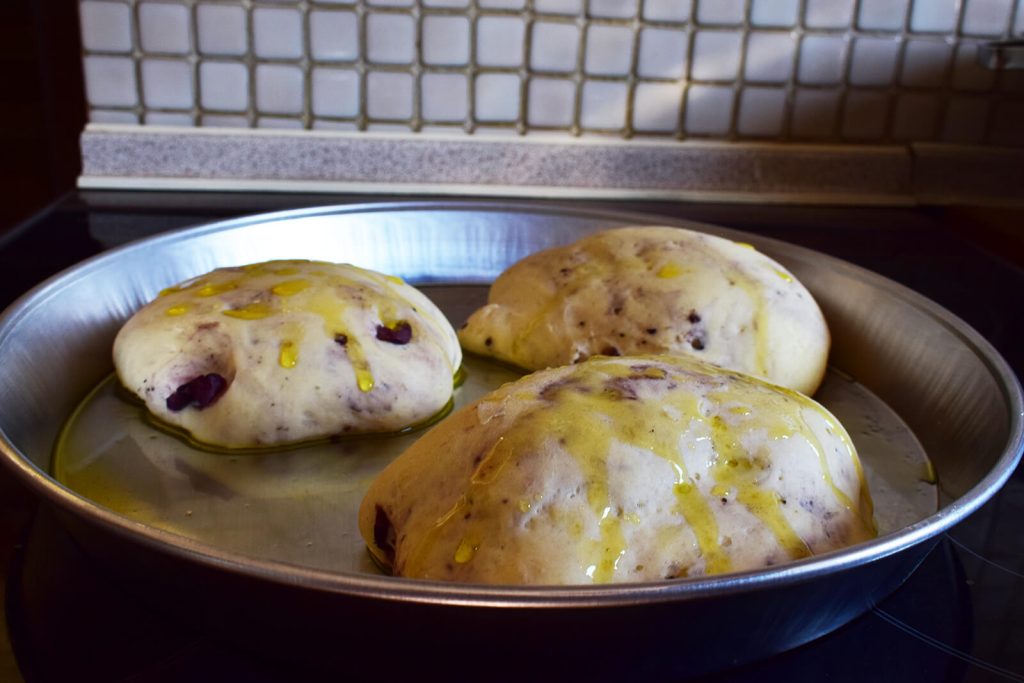

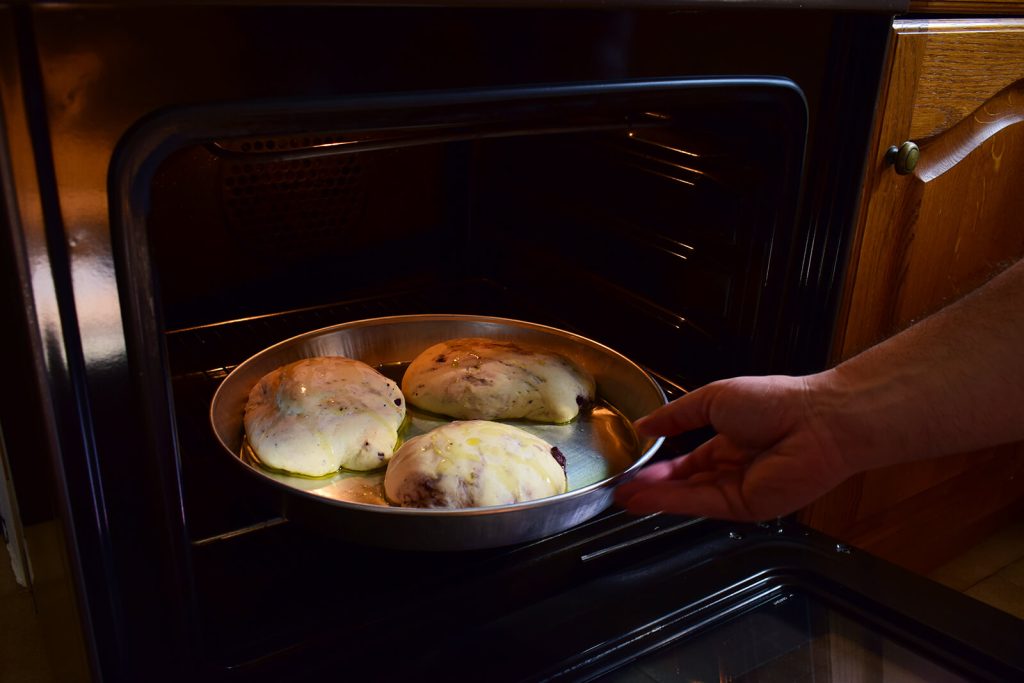
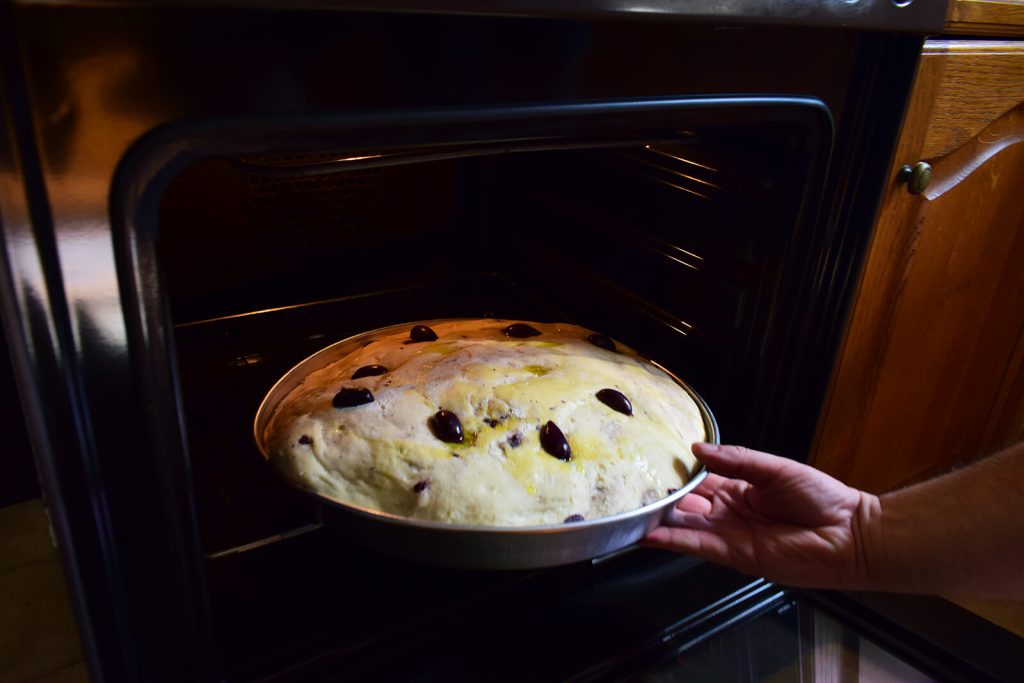
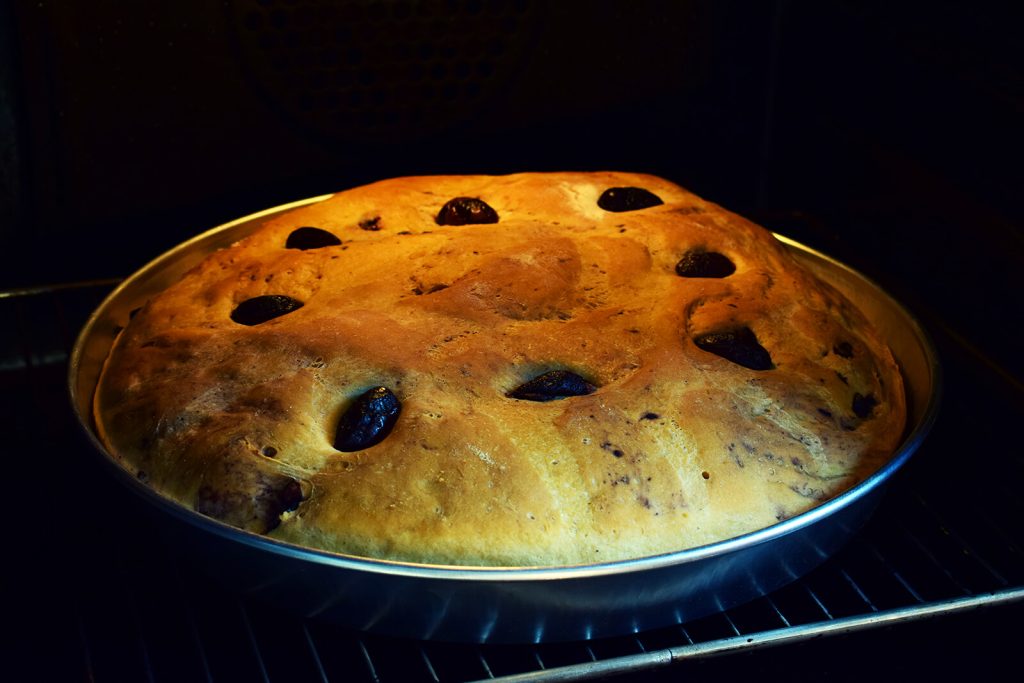
Photos: Nikos Chrisikakis
Chalkidiki's Traditional Olive Bread
Print RecipeIngredients
- 2 lb (1 kg) durum wheat flour
- 0.5 lt lukewarm tap water
- 3.5 oz (100 gr) olives (without pits)
- 5 fl (150 ml) extra virgin olive oil
- 0.6 oz (16 gr) dry yeast
- 0.1 oz (3 gr) sugar
Instructions
- Dissolve the dry yeast in the water.
- Add the sugar and stir well.
- Leave it to rise for approximately 10 minutes until bubbles form.
- Make a well in the middle of the flour.
- Add the dissolved yeast and approximately 130 ml of the olive oil.
- Knead the dough for approximately 10 minutes until it doesn’t stick to your hands and the dough becomes elastic. Add a little more water if necessary.
- Add the olives and knead briefly.
- At this point, you should decide whether you want to bake one whole loaf or three small ones. In the latter case, you should separate the dough (we show both methods in the photo documentation)
- Pour the rest of the olive oil into the baking tray and spread it evenly with a brush
- Shape either the whole dough or the 3 small pieces into a ball and place in the greased baking tray.
- Cover with a tea towel and place in a hot place until the dough visibly rises (approximately 1 hour)
- Remove the tea towel and bake in an oven preheated to 180 degrees for approximately 60 mins.
Tips from the Chef
- If you notice that the dough is too firm when kneading, add a little water. If it sticks to your hands, it needs a little more flour.
- If you are using a mixer, set it to medium speed.
- When the bread starts to have a golden color in the oven, prick it with a toothpick. If the dough sticks, bake a little longer.
- Since olives are added to the dough, no more salt is required. If the dough is too salty, there is a risk that it will not rise.


